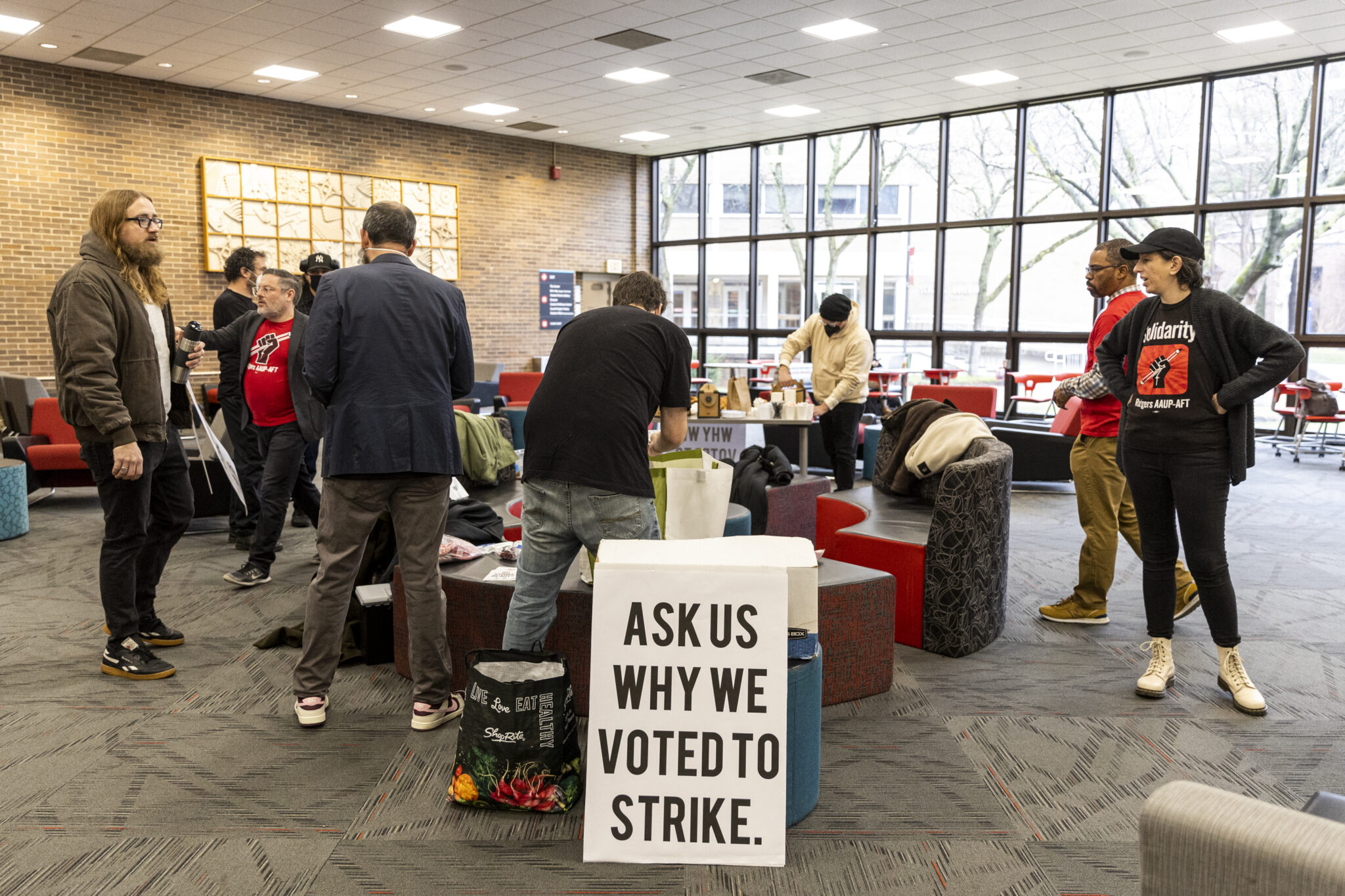Jacqueline Rayfield is a student at Harvard Law School.
In today’s News and Commentary, Rutgers University academic workers’ strike continues into its third day, Rhode Island School of Design teamsters strike reached its ninth, and the Union of Southern Service Workers alleges discrimination by South Carolina state agency in workplace inspections.
Three unions, including the Rutgers AAUP-AFT full-time faculty, graduate workers, postdoctoral associates; the Rutgers PTLFC-AAUP-AFT part-time lecturers; and AAUP-BHSNJ health sciences school workers, continue their strike on Rutgers’ campus into its third day. In a Monday email, Rutgers’ president, whose salary rose to $1.2 million per year in 2020, threatened legal action to force workers to end their strike. Workers since Monday have halted all work activity other than essential medical care and research.
At the Rhode Island School of Design (RISD), a prestigious art school in Providence, RI, teamsters movers, custodians, and ground service workers are well into their second week of striking. Workers ask for an increase in wages, which according to one employee amount to as little as $15.65 per hour, following the increased work hours and inflation since Covid-19 in 2020. Since the strike began last week, more than 200 students have joined striking workers and plastered campus walls with “art strike” posters in support of employees.
The Union of Southern Service Workers, an outgrowth of the Fight for $15 campaign, alleges discrimination in workplace inspections by the South Carolina Occupational Safety and Health Administration in a complaint to the U.S. Department of Labor. The union, which represents mainly retail, fast food, and warehouse employees, highlights in its own analysis that the agency has conducted zero programmed inspections from 2018 to 2022 of food and beverage or general retail employers. Black workers make up between 37.9% and 45.9% of workers in those industries. By comparison, the construction industry received 237 programmed inspections in that time, where the workforce is composed of over 90% white workers. The union claims that this disparity leaves black workers vulnerable to unsafe working conditions.






Daily News & Commentary
Start your day with our roundup of the latest labor developments. See all
February 20
An analysis of the Board's decisions since regaining a quorum; 5th Circuit dissent criticizes Wright Line, Thryv.
February 19
Union membership increases slightly; Washington farmworker bill fails to make it out of committee; and unions in Argentina are on strike protesting President Milei’s labor reform bill.
February 18
A ruling against forced labor in CO prisons; business coalition lacks standing to challenge captive audience ban; labor unions to participate in rent strike in MN
February 17
San Francisco teachers’ strike ends; EEOC releases new guidance on telework; NFL must litigate discrimination and retaliation claims.
February 16
BLS releases jobs data; ILO hosts conference on child labor.
February 15
The Office of Personnel Management directs federal agencies to terminate their collective bargaining agreements, and Indian farmworkers engage in a one-day strike to protest a trade deal with the United States.